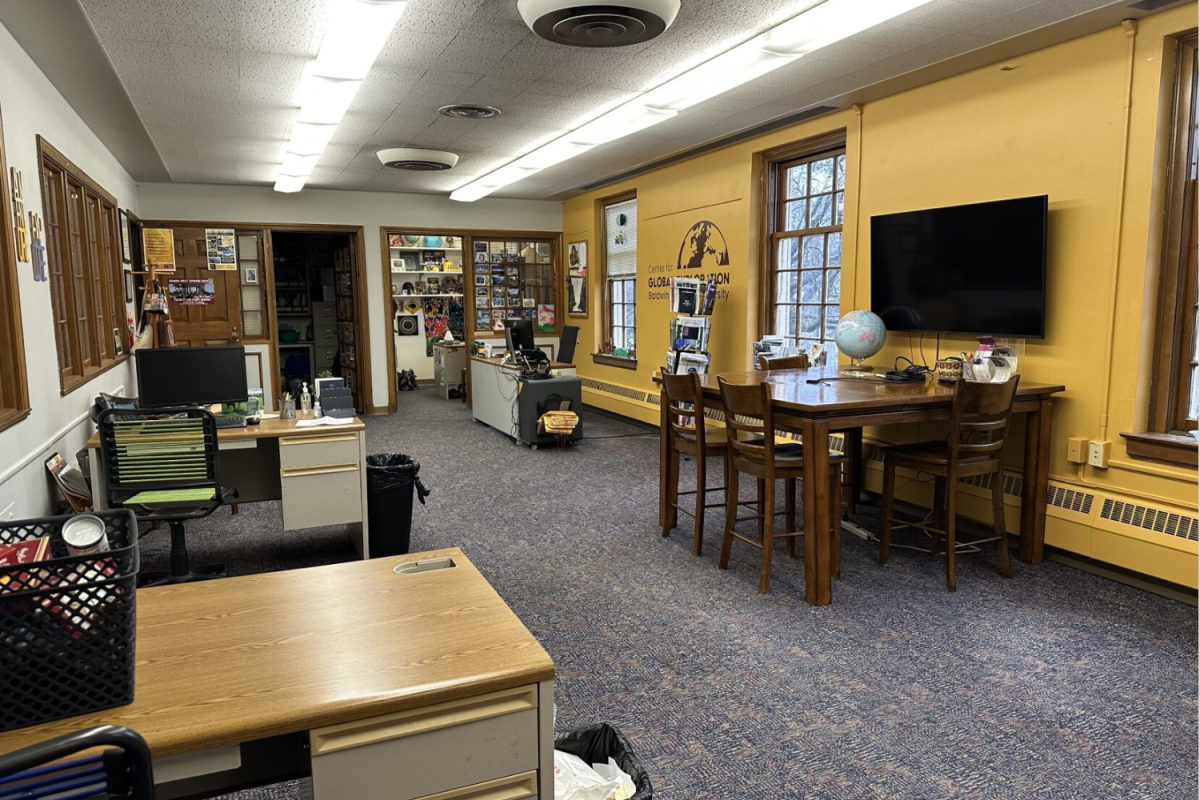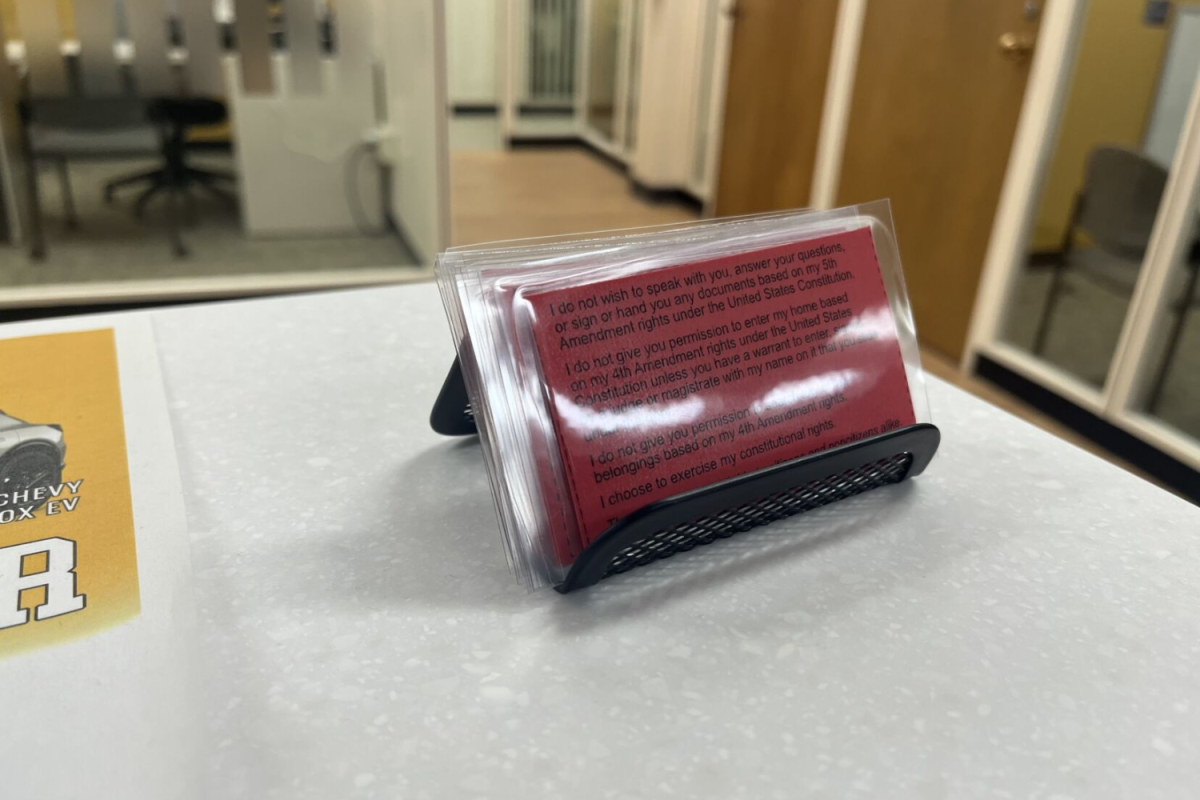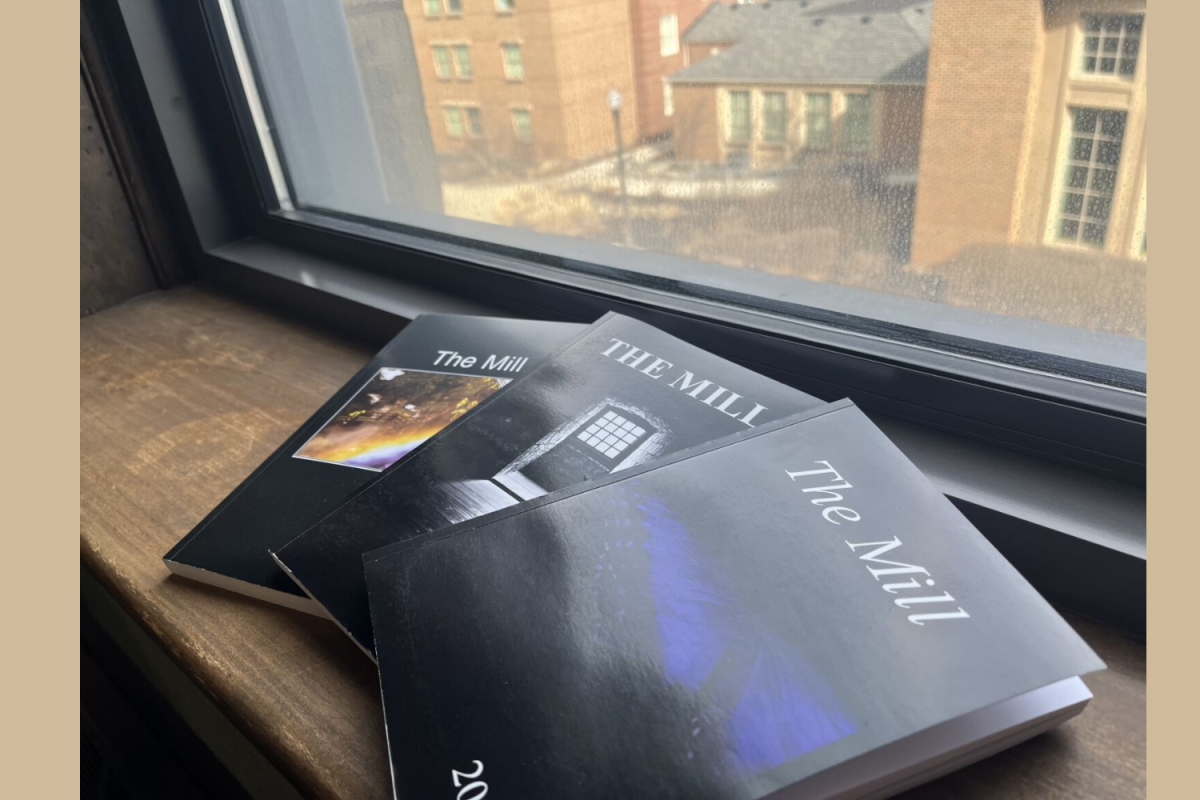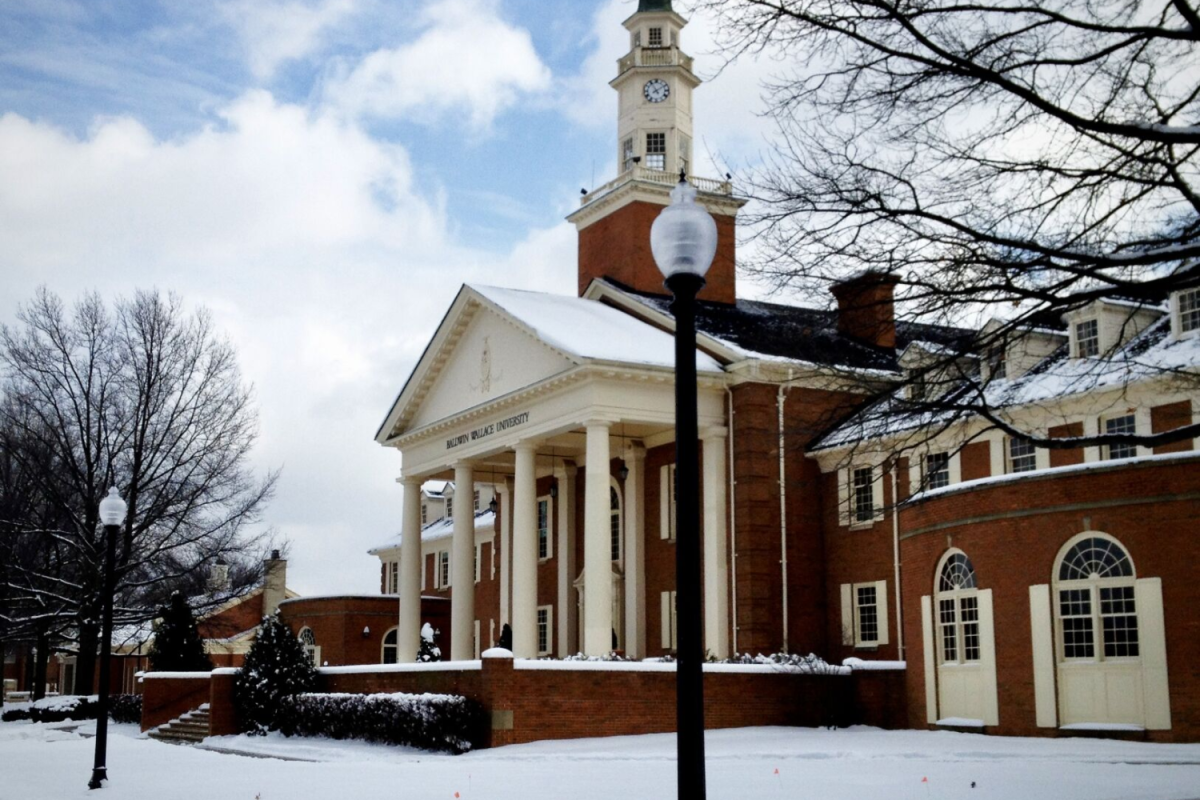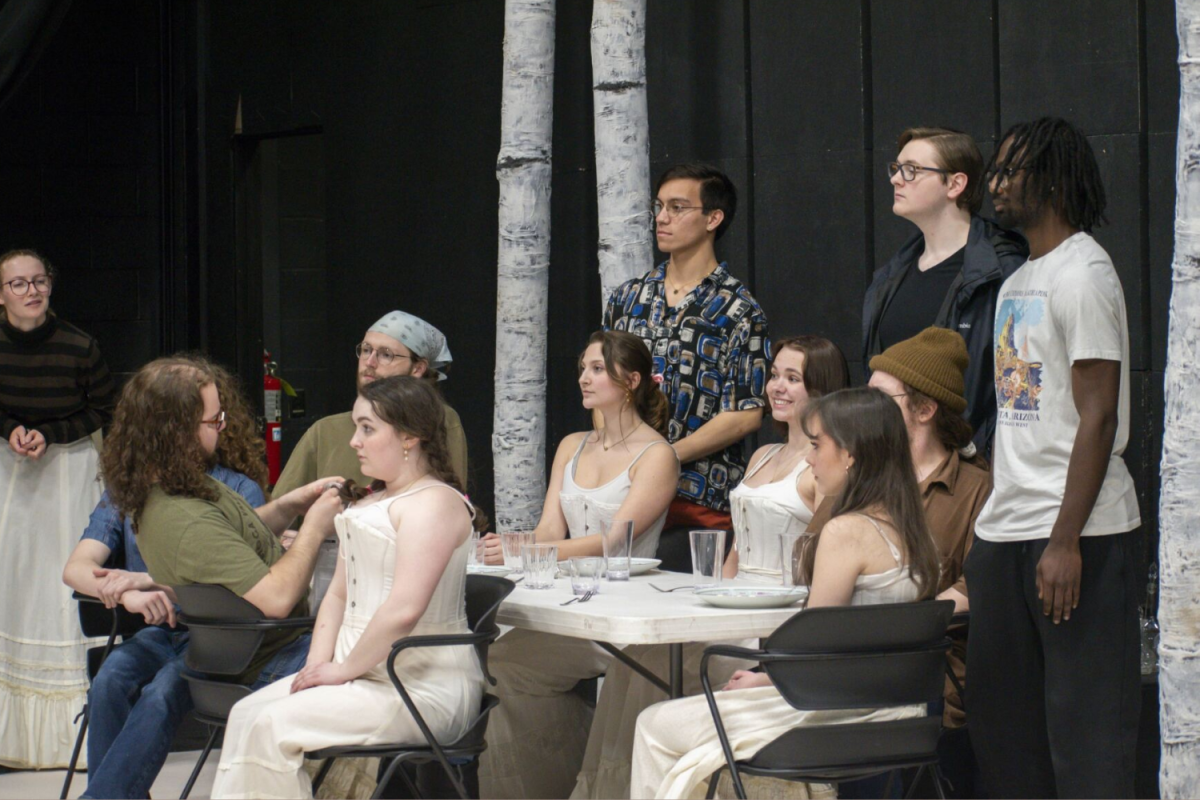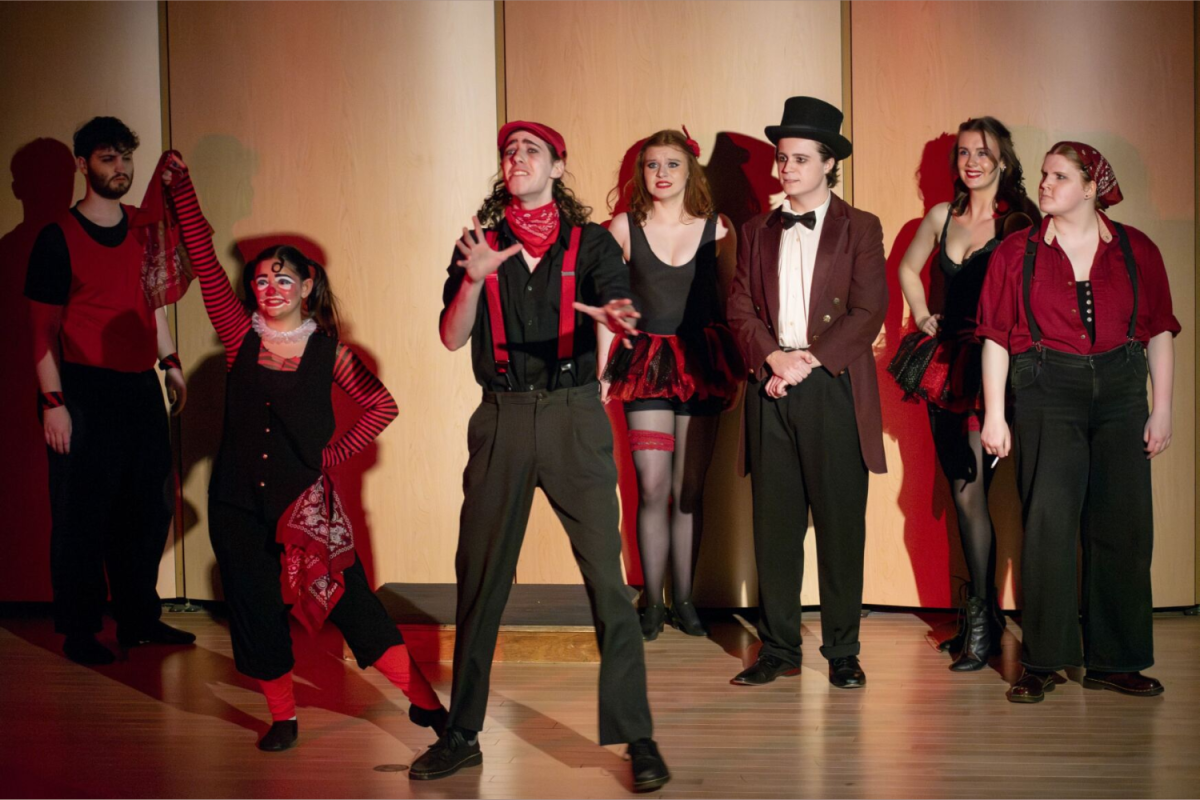The Department of Theater and Dance will bring William Shakespeare’s “Measure for Measure” to the Mainstage Theatre from Wednesday to Saturday, exploring themes of sexual politics through a gendered lens.
Bradley Hughes, a sophomore BFA acting student, said that the main plotline in “Measure for Measure” that BW is doing revolves around the Duke of Vienna leaving and appointing a deputy named Angelo to take over his role. Angelo is extremely strict and harshly follows the laws, which entails cracking down on luxury crimes of sexual nature.
“My character, Claudio, gets arrested because I got my fiancé pregnant before we were legally married,” Hughes said. “After I get arrested, the law indicates that I should be put to death. Angelo uses me as an example to warn the rest of the town what would happen if you were caught in this act.”
Hughes further explained that Claudio goes on to ask his sister, Isabella, who is a nun, to “argue his case” with Angelo. From there, Angelo falls in love with Isabella, but says that he will only let her brother live if she sleeps with him.
“So, Isabella is facing this moral dilemma of ‘Do I give up my chastity as a nun? Or do I save my brother’s life?’” Hughes said.
The story repeats in the second act, but the gender roles of Angelo and Isabella are switched along with the time period, which changes from 1604 to a modern 2024.
“The audience gets to examine different gender aspects, like what it looks like when a woman is in power as opposed to a man in power,” Hughes said, “and what the relationship is between a brother begging his sister for his life at the cost of her virginity versus a brother begging his brother for his life.”
Hughes said that because of the differentiation between the first act and the second act, he hopes people will get “a little uncomfortable and ask themselves why.”
“The version of this play that we are doing asks many questions about what we believe about people’s places in society, whether that’s economically or related to gender or who we love or how we love it,” Hughes said. “So, I hope people can not only see something they relate to in the story and see themselves represented on stage, but I also hope they see something that makes them question what they think because I think that’s what art should do.”
Mugs Johnson, a junior BFA acting student who plays the role of Lucio, described their character as the “clown” of the show.
“Essentially, I’m a big gossiper. I ran my mouth and flapped my lips, and I caused a lot of trouble,” Johnson said. “But in a literal manner, I am an eccentric lawyer within the town who serves as a bridge between the audience and the show in terms of bridging the commonwealth and the upper class in the show through communication.”
Aaron Warrow, a senior BFA acting student playing the role of Ecalus, describes his character as the “head of the courts in Vienna.”
“He’s the Duke’s right-hand man when it comes to many of his decisions, but now that the Duke is leaving, he is charged with helping Angelo cement his place as a deputy,” Warrow said.
Jacob Anderson, a sophomore music theatre student playing the main role of Provost, describes his character as “one of the executors of the law.”
“Simply put, he’s a military police,” Anderson said. “He works under Angelo for the Austrian government. But the Provost also disagrees with many of Angelo’s actions and feels morally conflicted with how Angelo executes the law.”
Hughes said “Measure for Measure” was a unique experience because it was his first Shakespeare performance.
“It’s been a challenge to specifically have to dig into a character that is being told, ‘You are going to die tomorrow,’ and having to wrestle with that as myself, but also as the character,” Hughes said. “It’s been an intense and emotional process, and it’s been scary, but luckily, our production team and Laura, our director, has been so caring and supportive.”
Ava Mastrone, a senior acting and directing student who plays Marianna’s role in “Measure for Measure” and the character of “Justice” in Act 2, said an aspect that she is still exploring within her roles is making sure she is differentiating the physicality of the characters in Act One and Act Two and finding differences in the vocal quality.
“I am making sure I am telling a different story because I am embodying a different person,” Mastrone said. “But what helps is that the more we run the show and get comfortable with it, the more I can explore and try different things.”
Johnson said that “Measure for Measure” has been a unique experience for them because the art of Shakespeare is “layered and has distilled text.”
“Every word is in his work for a reason. It’s poetry,” Johnson said. “I think that one of the reasons I love working with Laura, our director, is because with every single movement, and every place we move, every step we take on this stage, she makes intentional, and she makes it very specific.”
Warrow said it has been an interesting experience crafting his character in “Measure for Measure.”
“I think what’s interesting is…how my character will change through the acts, because it does very much feel like because we conclude the play, my character’s arc in the story — all of our arcs — have concluded by the end of the first act,” Warrow said. “But then figuring out how that changes and shifts in the second act has been interesting and in crafting the character. I think crafting the character in how his mannerisms would be in the 1600s compared to the present.”
Anderson said that his experience with Shakespeare overall has been unique, because being a part of a Shakespeare production has challenges not typically encountered in contemporary theatre, with the most significant challenge being highly complex language.
“It is incredibly dense, and there’s so much poetry and literary devices in use that it is challenging to pick all of it apart and find the meaning,” Anderson said. “It takes a lot of work not only to understand the language, but also to understand it so that you can present it to the audience, so they understand it,” Anderson said.
Anderson said that Shakespeare can be challenging to learn, but once you understand how to perform the work, it is brilliant and extraordinary.
Tesia Benson, associate director of costume design and program coordinator for the Tech and Design program, is the costume designer for “Measure for Measure.” This will be her second Shakespeare production where she has designed costumes.
Benson said that from a practical application, a period show requires a depth of knowledge about the historical clothing of that period and an understanding of why people wore things in the period.
“For example, we have negative connotations about corsets and that we view them as a tool for the patriarchy, but that’s not what corsets are meant to do…the corset was more about modesty and not changing or encouraging a different shape…” Benson said. “So that depth of knowledge that I have, just from my own years of study, really forms then how I make choices with a time period show.”
Benson said the costumes add an “element of heightened visuals to the actors.”
“Shakespeare is a heightened text, which is already a barrier for us as modern audiences because we don’t speak this way. If we started and did the opposite, and the first act was in street clothes, that language might feel a little more impenetrable to use, but we accept that when we see it in this period,” Benson said. “And then when we revisit it in the modern era, the audience will be able to appreciate the words better because we’ve already said it in this heightened space,” Benson said.
Johnson said something they hope the audience will take away from “Measure for Measure” is the presence of “grace.”
“We have to go through life with grace; without it, we are animals,” Johnson said. “Without it, we delve into savagery, if we do not have grace and compassion for those around us. There are exceptions to every rule, and it raises the question of, ‘How do we find the exceptions? How do we be okay with them, and how do we love through them?’”
Warrow said a message that he hopes the audience will take from “Measure for Measure” is how our societal roles change — or not change — over time.
“I think audiences will want to delve into the little differences and similarities between one act and the other and what that makes them think of,” Warrow said.
Benson said that learning about our differences through performance could help people understand others.
“How we can learn to have more of those gray areas, those edges around our experiences to have compassion for others differently?” Benson said.

